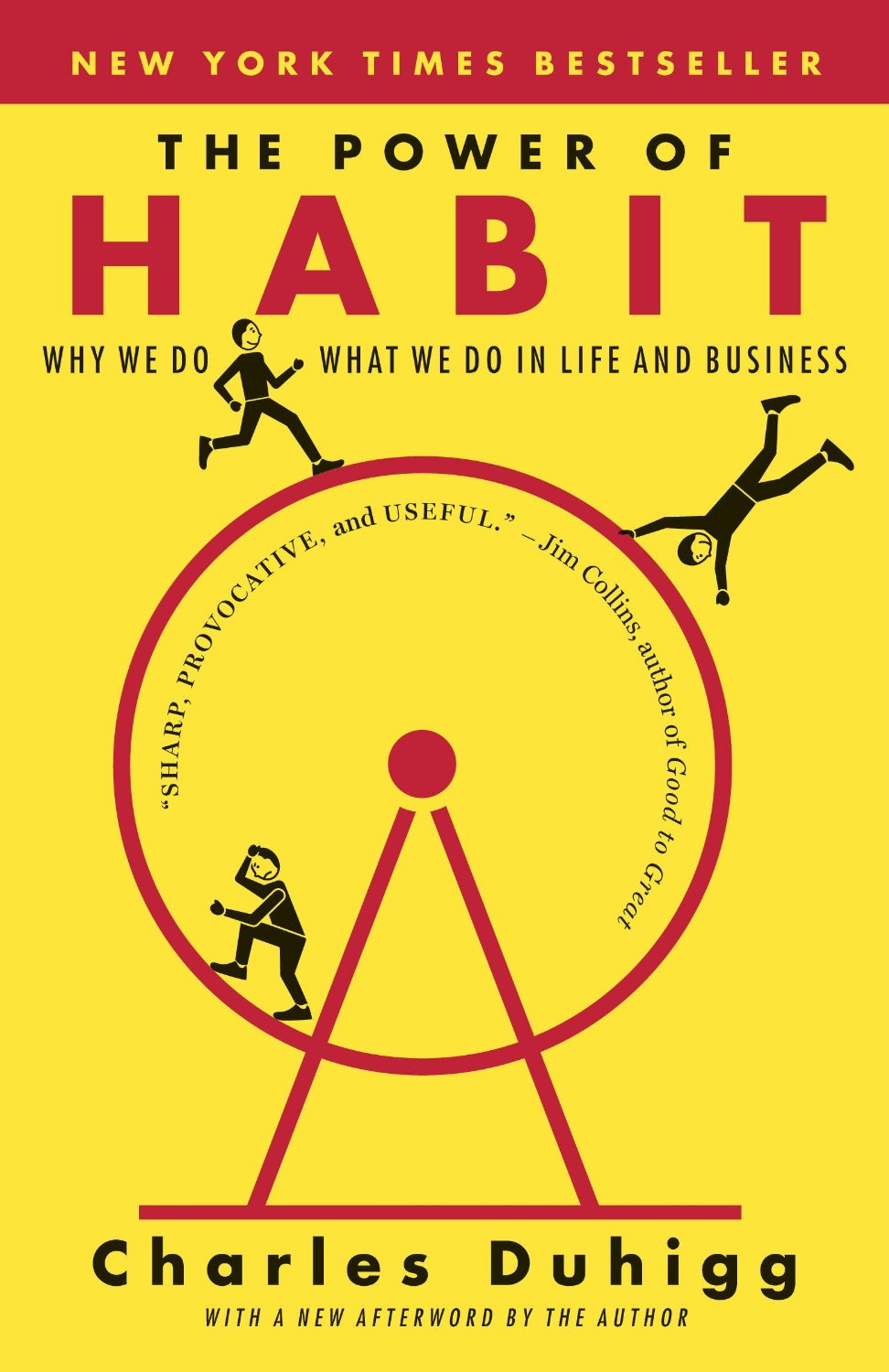If you want to know yourself, as Socrates once advised us all to do, author Charles Duhigg suggests the place to start is with habits. In The Power of Habit, he makes a compelling case that we are, at bottom, the sum of our habits. By understanding how habits work, and thus how to change them for the better, we can open up a tremendous potential for achievement and satisfaction in our personal life, our business, and ultimately our society.
The book is divided into three sections starting with the process of habit in individuals. Habits, he points out, are crucial to learning in humans. Every habit starts with a cue, then the routine, then the reward. We learn to walk with a reward of not falling, and thus we have that habit throughout our life.
Fascinating studies are beginning to chart the area of the brain that maintains habits, and some results have demonstrated the power of “cravings” to motivate all animals, including humans. Duhigg shows throughout the book how craving and reward not only guide our individual habits, but also how hoghlighting a collective craving can change an organization or a community.
Such knowledge, though, comes with the potential for abuse. Habit, indeed, is an engine that can drive an economy and make a business or industry successful. An example Duhigg provides is the success of Target in an age when Walmart seems to dominate the retail landscape. Target consciously sets out to make shopping appealing to new parents because it is a “change” that offers an opportunity for marketing intervention. Duhigg quotes a Target strategist: “As soon as we get them buying diapers from us, they’re going to start buying everything else too.”
Change also offers the first crack for the beginning of a movement. Duhigg uses the Montgomery Bus Boycott as an example. Rosa Parks’ act of defiance resonated with her friends and close acquaintances, and with theirs in a widening ripple of empathy. It endured because community leaders such as Martin Luther King then suggested new habits that would give participants “a fresh sense of identity and a feeling of ownership.” Peer pressure, he notes, is the social habit that drives change, but it is difficult to define, but often spreads through the weakest ties.
As powerful as habit is in our life, the most important question to answer is whether we are responsible for our habits. Do we truly have free will? Duhigg sums up with the experience of William James who studied and wrote about habits throughout his life. Water, James said, is the most apt analogy for habit because it “hollows out for itself a channel, which grows broader and deeper; and, after having ceased to flow, it resumes, when it flows again, the path traced by itself before.”
Knowing how to redirect that path, Duhigg concludes, gives you the power to swim. If you truly want to know yourself, this is a must read.
****
~Review by LiveTrue Book reviewer Kendall Hanson, a former senior editor for McGraw-Hill and managing editor for a group of community newspapers. He now divides his time between freelance writing and volunteer work for community nonprofits.


